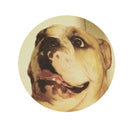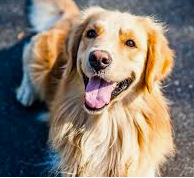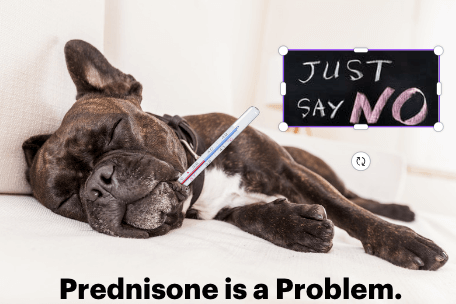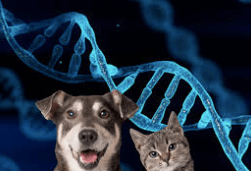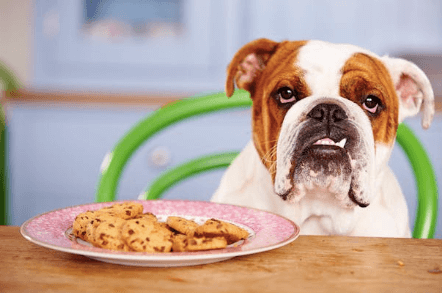The cancer rate in dogs is increasing. Cancer is one of the leading causes of death for dogs, cats and humans, despite it being uncommon in wildlife and other domestic animals. Cancer refers to a group of diseases in which abnormal cells grow in the body at an uncontrollable rate and can metastasize or spread to other areas in the body through the blood and lymphatic system. These abnormal cells can form tumors, or masses, which can be benign (non-cancerous) or malignant (cancerous). Unfortunately, the cancer rate in dogs is increasing.
Data suggests that the "death rate from cancer increased by almost 20-fold from the years 1850 to 2009" in humans. Unfortunately, the statistics for dogs are equally as alarming. In 2024, an estimated 6 million pet dogs were diagnosed with cancer in the United States. Further, statistics note that 23% of all dogs die of cancer, 45% of dogs over 10 die of cancer and some breeds have a cancer risk as high as 65%. The cancer rate in dogs is increasing.
The DNA of dogs hasn't changed, but our environment has. The killer combo of poor diet (kibble) coupled with increased exposure to toxic chemicals has contributed to this ever increasing cancer rate in dogs.
Unfortunately, a poor diet includes all kibble, prescription or not. Kibble contains some or all of the following, which are linked to cancer:
- Advanced Gycation End Products
- Aflatoxins
- Carcinogens like Acrylamide
- Chemicals
- Food dyes
- Herbicides like glyphosate
- High Carb
- Palatants
- Plastics – BPAs
- Preservatives
- Refined Seed oils
Additionally, according to Dogs Naturally, increased chemical exposure is linked to increased cancer rates including:
- Exhaust fumes
- Cleaning products and artificial perfumes at home
- Contaminants in water – arsenic, asbestos, lead, agricultural chemicals, pharmaceuticals
- Lawn chemicals such as glyphosate
- Pharmaceutical pest protection
- Secondhand smoke
- Vaccines and drugs
- Plastics – BPAs
The cancer rate in dog is increasing. The beloved breed, Golden Retrievers are particularly impacted by increasing cancer rates. This is due to a genetic predisposition to cancer that are activated further by poor diet and chemical exposure. Unfortunately, according to Dr. Karen Becker, DVM, cancer rates among Golden Retrievers began to spike in the 1990's, and "about 60 percent of all Golden Retrievers will die from cancer – 57 percent of females and 66 percent of males."
Interestingly, Golden Retrievers were not identified as having a higher rate of cancer than other breeds according to a study conducted by the University of Pennsylvania School of Veterinary Medicine in 1988. However, by 1999, just 11 years later, more than 60 percent of Golden Retrievers dogs living in the U.S. were being lost to cancer.
The genetics of Golden Retrievers didn't magically change of all a sudden, but environments did. We believe the combination of the increased frequency of a poor diet, increased exposure to environmental toxins coupled with genetic predisposition are the drivers of this disease. The intake of the environmental toxins listed above is a recipe for disease.
Specifically, Dr. David Turner, Ph.D, a cancer researcher, believes that the consumption of processed pet food, like kibble, has contributed to the shorter lifespan and health span of the breed. According to Dr. Turner, "AGEs promote cancer" because "they can make cancer grow quicker. They are not just there because cancer is there. They contribute to the growth of that cancer because they cause inflammation around the tumor, which then allows the tumor to grow a lot quicker without being impeded"
He and his team estimate that "dog food is about 100 times higher in AGEs (advanced glycation end products) than human food" and "in a litter over a decade, Golden Retrievers have lost about five years of their life expectancy."
So what can you do?
By feeding a high quality diet like raw or home-cooked will drastically decrease the amount of sugar a dog with cancer intakes, which will help prevent the growth and spread of cancer by literally starving the cancer.
In addition to poor nutrition, increased exposure to toxic chemicals is another driver of cancer. Pure-breed dogs, like Golden Retrievers are genetically predisposed to cancer, and increased exposure to toxic chemicals creates toxic overload. For example, vaccines are not tailored to meet the individual needs of each breed, which is why a 4lb Yorkie gets the same amount of vaccine as a 100lb Saint Bernard. Vaccines also contain a whole bunch of adjuvants and preservatives to prolong their shelf-life, but add no health value for your pet.
If you over-vaccinate, use toxic chemicals in your home and toxic chemicals, like glyphosate, outside of your home, the main detoxification organ in the body literally becomes bombarded and can no longer function optimally, which creates sickness like allergies, autoimmune disease and cancer etc. The dose determines the poison and ultimately, the more toxins in the body, the more sickness.
Donate to Bobzilla.org

$5.00
The veterinary business is business which is not in the business of curing your animal, but Bobzilla's business is. Bobzilla is committed to one hundred percent transparency in all of its scientific research into animal wellness and prevention of disease and one… read more
